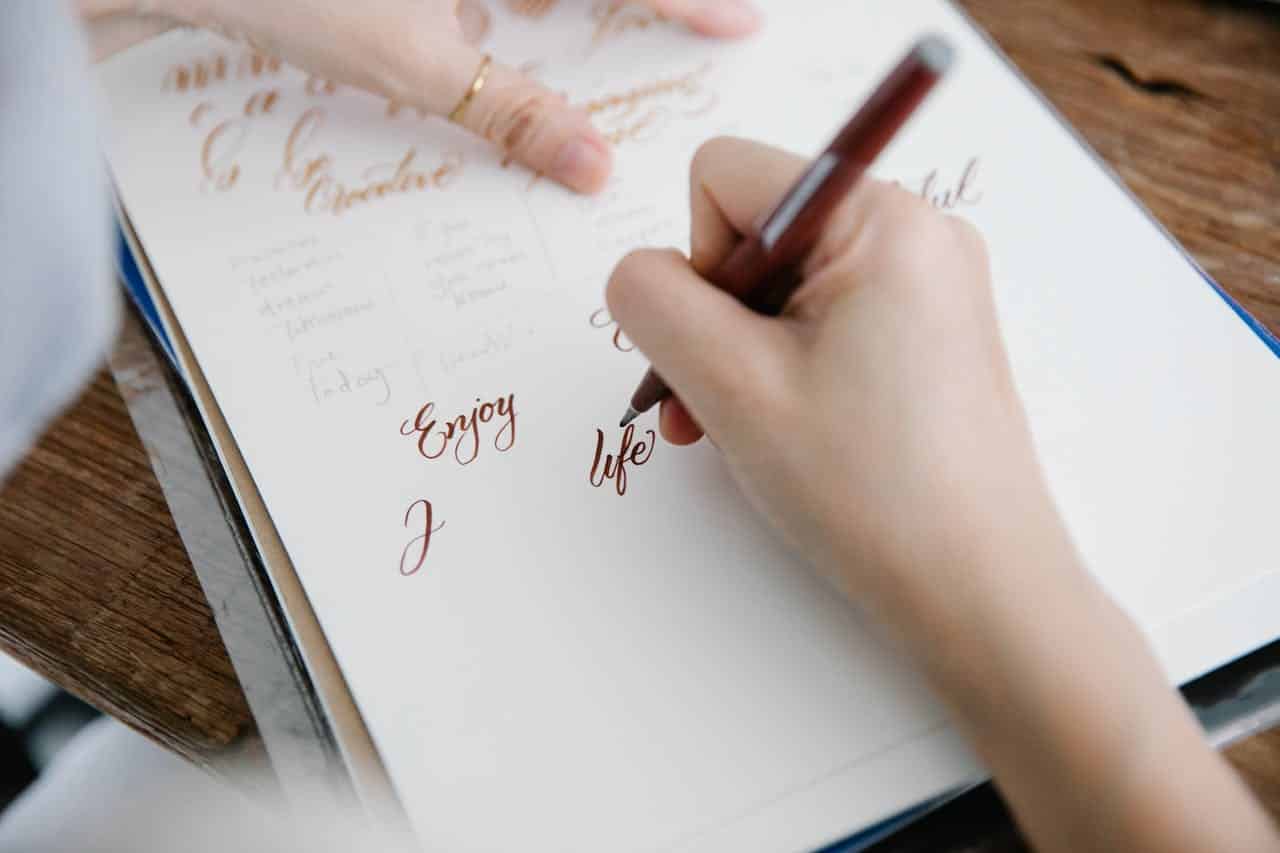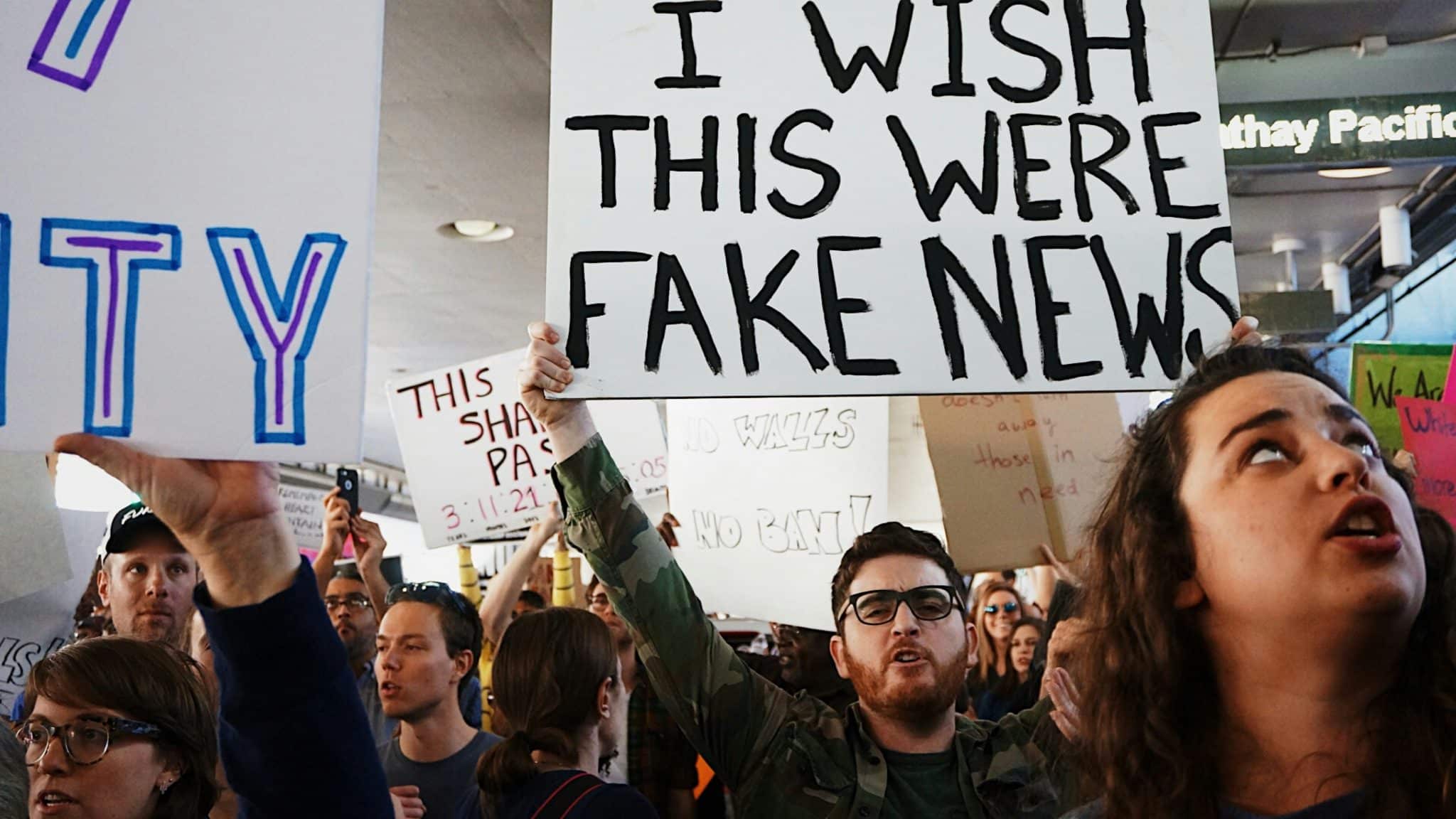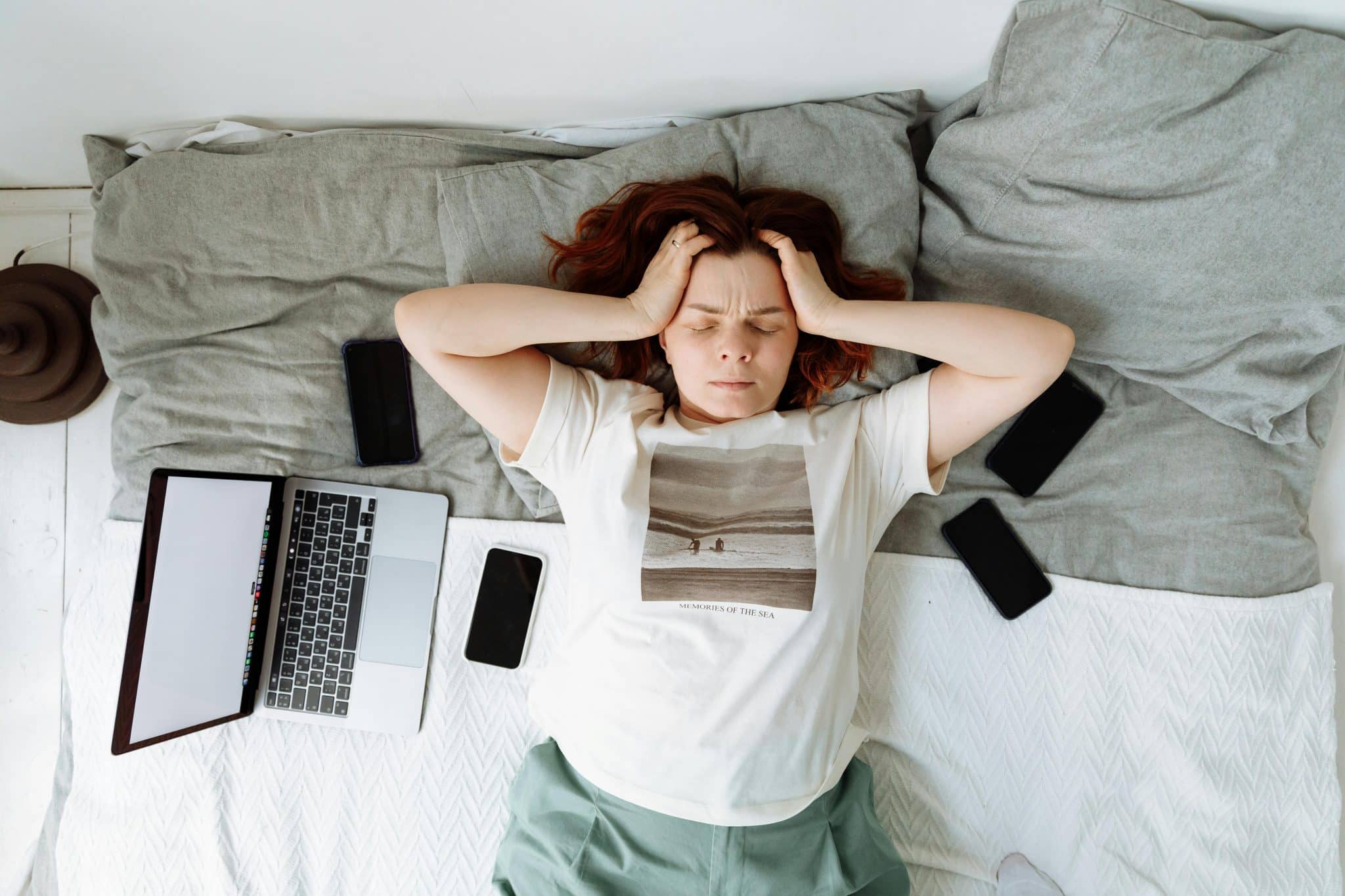Jillian Horton: Healing Burnout in the Medical Professions

Medicine’s toxic culture can be cured with more compassion for professionals and patients alike
Here at Freedom, we frequently find ourselves inspired by the people who use our product. From Academy Award-nominated screenwriters, bestselling authors, editors, and journalists, to developers, illustrators, designers, academics, and entrepreneurs – the Freedom community is packed with curious, creative, and passionate go-getters.
We love to share your stories because we believe the best way to solve the problems we face at work in today’s world is to learn from those who are living those experiences daily– and figuring out how to thrive while they do it!
Meet Dr. Jillian Horton
When it comes to workplace stress, we can all agree that the medical professions are up there with some of the most high-pressure jobs. You won’t be surprised to see physician regularly topping the lists of most stressful careers, and various other medical professions following not far behind. The pandemic, inevitably, has only added to the stresses facing medical workers.
What you may not be aware of is that a lot of the problems that cause burnout among medical professionals can also be avoided, which is something that Dr. Jillian Horton has discovered first hand.
Jillian, a writer, musician, and internist from Canada, experienced the devastating results of a flawed system when she came close to personal and professional collapse. A meditation retreat for burned-out doctors proved to be a turning point, as she realized that she was not alone – and that her struggle with burnout was not so much personal as it was the result of a larger system failure.

Her first full-length book, We Are All Perfectly Fine: A Memoir of Love, Medicine and Healing details these experiences and was released by HarperCollins Canada in February becoming a national bestseller. Jillian is also a sought-after speaker and teacher of mindfulness for clinicians, both nationally and internationally. Her writing about medicine appears regularly in the LA Times, as well as a variety of American news outlets by syndication. In April 2020 she was awarded the prestigious Gold Foundation Humanism award for her national contributions to compassion in clinical care.
We were honored and inspired to sit down with Jillian to hear how she is using her experiences to improve the lives of medical professionals and patients, and the crucial role of compassion not only in treating others, but also in taking care of ourselves.
Jillian, you have pursued a number of different paths simultaneously, it’s inspiring! What came first: writing, music, or medicine?
Music and writing are almost inseparable to me; one is just a little more raw. When I look back at my childhood, my grade-school notebooks are full of songs, stories, lyrics. I metabolize my life by writing – it almost doesn’t matter whether it’s in a song or an op-ed.
But the drive to pursue a career in medicine was also present from the time I was very young. I grew up with a very disabled sister and caregiving is a reflex for me. So it’s funny how it all became enmeshed. Part of how I coped with the stress of medical training was by writing music. And part of how I process learning and trauma and loss in my life is by writing about it. I work it out on the pages.
The culture of medicine is absolutely toxic.
The stakes are very high, the pressures are enormous, and emotions are repressed. That environment is going to generate a lot of suffering.
In your memoir, you write about your own experiences of burnout. What were some of the reasons that led you to the brink of personal and professional collapse?
The culture of medicine is absolutely toxic, and it combines with the “typical” medical personality in very destructive ways. Physicians often self-identify as workaholics, Type-A, or control freaks. Drop that into a culture where the stakes are very high, the pressures are enormous, and emotions are repressed and you create an environment that is going to generate a lot of suffering.
We work in a way that is counter to our physiologic limitations – including years of profound sleep deprivation during our training – and I believe it changes us in some fundamental ways that are actually harmful.
I am also an empath. I love talking to people, getting to know them on a deeper level, taking that extra time to really comfort them. Our system devalues that – it prioritizes speed and volume over quality of interaction. And yet, for me and so many others, it’s that quality of interaction that keeps you going.
So when you want to practice in a certain way, medicine has the potential to destroy your life because you are always at odds with these forces. It was cumulative. And it was more than even very resilient and committed people can be expected to handle without incurring unacceptable levels of emotional and physical trauma.

What changes have had the most significant positive impact on your life and your wellbeing since then?
I’m part of a generation of physicians driving culture change. I am so proud to be part of that movement. I have a community now – both through the mindfulness training I did at the University of Rochester and also through Chief Wellness Officer training at Stanford University.
Knowing that there are so many people with a version of my lived experience has been cathartic. And I’ve woven mindfulness practice into most aspects of my life. Sometimes I call it self-regulation training instead of mindfulness training because mindfulness feels too ambiguous for some people – when really it is a very focused skill.
Also, just learning to accept my complex emotions, reframing my relationship to grief and suffering and uncertainty. We can learn to coexist with these things without trying to obliterate them. It is a much more peaceful way to live and it has helped me enormously.
You write about burnout being a systemic problem as opposed to a personal one, can you tell us a bit more about that?
Physicians are really resilient. The literature tells us we are actually more resilient than our age-matched controls. The problem is we have a resiliency mismatch. You can be a really resilient polar bear, but that’s not going to help you if you’re airdropped in Hawaii.
Resiliency training is only useful to me insofar as it has helped me to survive in a toxic environment so I can continue to work to change it.
We now spend about two hours charting for every hour we actually spend with people. It’s particularly damaging in a profession that is supposed to be based on connection and trust.
What are some of the problems of burnout that are specific to the medical profession?
We all struggle to put limits on technology, but the modern electronic medical record has been a curse. There’s lots of literature that shows it has fundamentally altered the quality of our interactions with patients.
We now spend about two hours charting for every hour we actually spend with people. It’s particularly damaging in a profession that is supposed to be relational and based on connection, trust, compassion and service.
The computer disrupts a lot of that and it adds to our cognitive load, when really you’d rather that your doctor had all their brain power freed to focus on you and your problem, not remembering which of fifty drop-down windows they have to open to order a blood test.

What are the biggest challenges that medical professionals have faced during the pandemic?
There are many that we share with the general public – isolation, uncertainty, fear of exposure, the onslaught of suffering without reprieve. Usually, in our clinical environments, there’s some ebb and flow. Some days are a 4 and some days are a 10. We’ve now had a year-and-a-half of turning the dial up to 10.
And as the pandemic situation improves, we are now faced with a backlog of surgeries and procedures that is going to take us years to catch up on. So when you reflect on the fact that going into the pandemic, at least a third of physicians were experiencing burnout, and we are generally believed to have the highest suicide rate of any white-collar profession – you can just imagine that the added stress, despondency, and also the hostility many people are encountering from patients around vaccination is going to create a tipping point where some people walk away or worse.
A colleague said recently, “The elderly ladies who used to bake me cookies are giving me the finger.” There’s a real injury in that. It will take a long time to regain balance. I am most afraid of a significant wave of suicides in healthcare workers as they deal with the PTSD that is already emerging.
With so many careers and interests, how do you prioritize what tasks, activities, or people get your time each day?
I have a running list. I transcribe it each day. What are the things I must do? What are the things I would like to do? What are the things I am avoiding doing? I tend to numerate my tasks in that order. I also tend to have several writing files open on my desktop at any given time and my goal is to work on one of them every single day.
And I’m at a point where I get to say no a lot. A very wise mentor taught me that whatever I say yes to means a no in the future because I only have so much time. So if I am even a little bit ambivalent about something, I no longer do it. That is a point you work to reach in your career…it can’t be that way at the start. But the proportion of things you love should hopefully increase.
If people ask me to give talks or write pieces about things I don’t feel passionately about, I know it will take much more effort to do the work, so the time investment is actually even more than it looks. So I will only do those things if there is some enormous payoff, and I don’t mean financially, that is not what motivates me. I mean – if I’ll get to work with someone I’ve always wanted to meet, or be making a key contribution to something I believe in. But again, you get to a mid-career point where if it’s onerous, that’s probably a clue that it isn’t for you. I do what I love and then the work doesn’t feel like work.
A very wise mentor taught me that whatever I say yes to means a no in the future because I only have so much time.
What do you do outside of your work routine that helps you stay healthy and productive?
I really love Gretchen Rubin’s work. Her book The Happiness Project was kind of a turning point in my life – in fact, she gave me a blueprint to get writing again. I’ve really internalized a lot of her writing about time management and priority setting. She’s another person whose career path has been somewhat atypical and I look to her as a constant source of wisdom and inspiration.
I meditate every day. Sometimes that is informal – walking meditation, doing the dishes intently with a focus on my thoughts, sometimes it’s sitting still on a chair on the porch and just settling in. I walk my dog. I use Peloton because I find it really efficient and I enjoy it. I read Archie comics with my youngest son – that is one of my favorite rituals.
And I’m lucky that writing keeps me emotionally healthy – it is not work for me. I’ve also accepted the idea that time to just rest and do nothing is excellent for the creative process. I became more productive when I stopped cramming every second of my day with work because suddenly that space emerged for creativity and reflection.
As a Freedom user, at what point did you realize that technology was taking a toll on your productivity and time?
Part of me hates technology. I think that’s common. We all struggle at times with delayed gratification, and of course we know that social media is intentionally constructed to try to sneak past our weak spots.
I’m aware that self-restraint is a process that takes energy. I want to save my energy for my passions. So removing the need to waste energy on self-restraint when it comes to Twitter or email or just reading the news – that’s huge for me. Sometimes it takes you a while to get on a roll when you’re writing something and if you block social media during your writing time, you make it easier to get those first few minutes over with each day – you can just get to work.

How do you find a balance between being connected and overwhelmed?
I finally gave in to Twitter because of my book. It’s tough to be an author and have no social media presence. So Twitter was my concession. But for me, there are clear boundaries. When I’m going to post something, I usually think, why? I said something clever – do I really need other people to validate this? Do I need to share what my kids did today, which, maybe it’s funny, but isn’t that kind of sacred? Isn’t there some other way I can engage?
I silence notifications. I tend to answer emails in batches at particular times during the day, and I don’t answer non-urgent things on the weekend. I only have my personal email on my phone, not my work email. When I’m tired, I take breaks.
I try to reject any meeting before 8:30 that isn’t absolutely necessary and increasingly I challenge medicine’s norm of journal clubs and group meetings in the evening because “that’s the only time we can all meet.” No, it isn’t, but guess what, that’s the only time I can see and talk to my children during the week and they matter too.
What advice would you give to someone who is feeling overwhelmed and close to burning out?
You are your most precious resource. If you run yourself into the ground, you will pay for that down the road. It catches up with you and you don’t always recognize that’s what is happening. You’ll pay with your health, with your sense of well-being, with your creativity. Your family will suffer in ways that are invisible but hard to reverse.
Understand that this isn’t a problem with you. We work in a culture that encourages us to develop a lot of destructive habits, including extremism. Challenge that thinking. Look at your conditioning, and be ready to question who has dictated your values when it comes to your life.
You are your most precious resource. If you run yourself into the ground, you will pay for that down the road. You’ll pay with your health, with your sense of well-being, with your creativity.
What changes would you like to see in the way we work in order to prevent others from experiencing what you went through?
In medicine, I want to see a complete culture shift. We’ve treated doctors like they are capable of things that no human is capable of – chronic severe lack of sleep, depression, emotional repression, no rest and recuperation.
I want our definition of excellence to change in medicine. I don’t want it to be about martyrdom. I want to see conversations evolving about our workplace safety. Some people say this is not compatible with our “calling”. This is nonsense. We’re destroying ourselves. I believe more workplace protections can actually make us better doctors.

What upcoming projects are you most excited about?
I’m working on a new book proposal, and it involves mindfulness but from the same kind of “get real” perspective as We Are All Perfectly Fine. It’s such a relief to get back to working on a large project, and everything about my experience with HarperCollins was just like an amazing dream from beginning to end – and now I know a lot more about the process than I did two years ago.
I am hopefully on the cusp of an agreement to create my first full-length radio documentary and that is thrilling because I just love that medium.
I contribute to the LA Times regularly, and that’s just a joy and a privilege – I have an editor there who completely gets me, and writing those pieces is often a highlight of my month. And I love teaching mindfulness to doctors – I work with groups across North America and it is the best feeling to be able to teach other people the skills that made my life better. It’s really brought everything full circle.

We Are All Perfectly Fine is published by Harper Collins and available to buy.
To stay up to date with Jillian’s work, follow her on Twitter.


